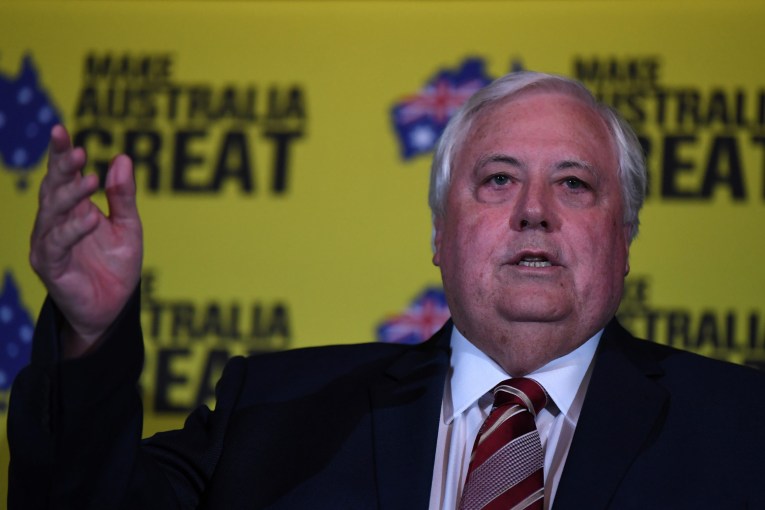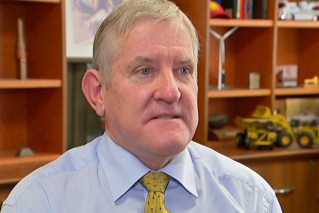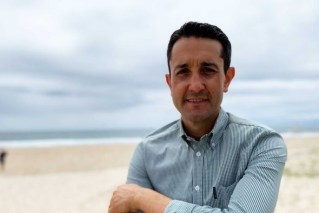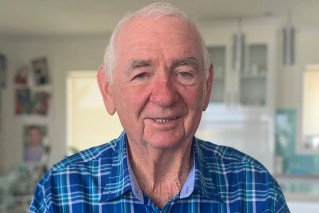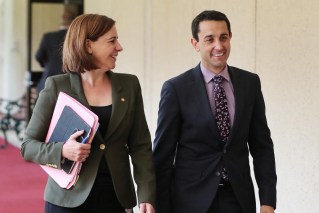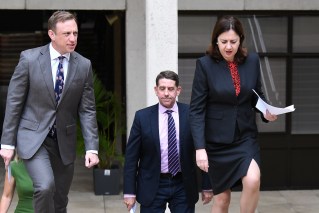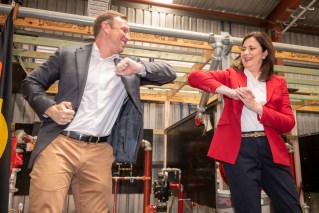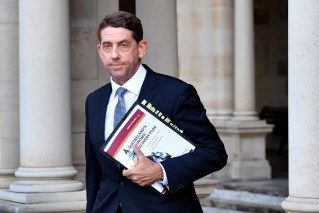Friday forum: Our experts analyse the campaign’s final week
InQueensland has asked community, business and industry leaders to share their impressions of the final week of the election campaign. Here are their thoughts:

Barton Green, chief executive officer, Committee for Brisbane

Whatever tomorrow’s outcome, my hope is that the new (hopefully majority) government uses Queensland’s first fixed, four-year term wisely.
The government should take the opportunity to map out a comprehensive strategic plan – relying on the surety of four years to curate beneficial policy and funding initiatives. But not alone.
The Committee for Brisbane has recommended the establishment of a “Commission for the New Economy”, drawn from corporate leaders and senior government bureaucrats, to be charged with considering and stress-testing big ideas to restructure and boost our State economy.
A business as usual approach to planning and policy-making will fail. Innovation and adaptability are key to Queensland’s new economic success.
Economic recovery and stability has the best chance of success when government policy levers and funding decisions are informed by the knowledge and experience of the business sector that has skin in the game, understands risk and makes the business decisions that drive the economy and innovation.
Amanda Rohan, CCIQ general manager policy and advocacy

There certainly weren’t any crescendo moments or announcements in the last week of this election campaign.
But with both major parties delivering the costings of their policies, regardless of who takes office, what is evident is that Queensland needs a budget and a health plan for our economy.
And it’ll need to happen in the first 100 days of them being in office.
As our September quarter CCIQ-Pulse survey showed this week 99 per cent of businesses were unsure of their ability to operate when stimulus support ended, and there needed to be a plan in place to stop that from happening.
Leading into this election, CCIQ developed policy priorities aimed at transforming our economy by enabling businesses to succeed. We’ve received commitments from both the major parties on how they will commit to those policies, and compiled a scorecard on how they stack up (available on our website cciq.com.au).
However, the true strength of the next elected government will be shown by how quickly they action them.
As the safety and wellbeing of communities, businesses and the thousands of Queenslanders employed by small businesses are relying on it.
Greg Hallam, chief executive, LGAQ

It was scare campaigns at 10 paces this week as the political parties threw everything they could at voters – and each other – to round out the last few days of the election.
Clive Palmer ramped up his death tax claims, Labor continued to push its allegations of an LNP public service cuts plan and the LNP accelerated its attacks on Deputy Premier Steven Miles.
This all points to a much closer contest than the initial weeks of this campaign indicated.
The question will be whether there were enough undecided voters still listening amid the massive pre-poll vote witnessed this time around.
My sense is the final election outcome will be close to a draw, with a minority government looming as the most likely outcome.
If you fancy a punt, there are some decent odds on offer for a hung parliament or a Labor or LNP minority government.
It may be a long night Saturday night with the final result likely stretching into days if not weeks.
The LGAQ stands ready to work with whomever the people of Queensland elect tomorrow.
Kevin Bates, President, Queensland Teachers’ Union

As Queenslanders decide who will govern our state for the next four years, the differences in education policy between the major parties capable of forming government in their own right are clear. Labor is the leader on education at this election.
Labor has announced:
- concrete plans for school and TAFE infrastructure and educational facilities
- a sound hiring policy for additional school staff
- a major initiative to provide more support for child and youth mental health
- expansion of vocational education in our state schools and
- they have the track record to prove they can deliver on the promises.
The LNP’s general disengagement from education in schools and TAFE over the past six years has continued throughout the 2020 election campaign. Their announcements are piecemeal and fail to inspire confidence in a cogent plan for education.
Populist notions such as a “back to basics” approach to the curriculum are typical of policies that appear to be little more than an afterthought. An expansion of Outside School Hours Care which is based in schools is one highlight. The LNP’s track record on schools and TAFE when last in government is generally negative.
The minor parties may yet play a role in forming the next government; in this election, the Greens have had the broadest and most ambitious engagement in education policy.
Ian Macfarlane, chief executive, Queensland Resources Council

In the lead-up to Saturday’s election, Labor and LNP have agreed to work with QRC on:
- an industry development plan to support the sector’s future growth;
- encourage exploration to uncover new discoveries for coal, metals and gas;
- commit to 12 weeks’ consultation of regulatory changes that may impact on the sector;
- streamline assessment and approval processes for new and expansion projects;
- promote the development of the North West Minerals Province, particularly for the critical minerals to support the growth of advanced manufacturing, battery storage and renewable energy; and
- progress the CopperString project in the State’s northwest.
In addition the LNP has committed to a 10-year freeze on resource royalty rates and thresholds, and to approve New Hope’s New Acland Coal Mine Stage 3 Project.
The Katter’s Australian Party has endorsed key elements of the QRC’s election agenda including the 10-year royalty freeze, streamlined approval and assessment processes and an industry development plan.
Aimee McVeigh, chief executive, QCOSS

It’s election eve and we’re in the middle of the worst economic downturn since the Great Depression. When our community was in lockdown it was incredible to witness the ways people looked after one another.
Queenslanders signed up for the Care Army, demonstrating their commitment to keeping vulnerable people in our community safe. The Labor Party has committed $1.7 million for the Care Army this week – we haven’t seen the detail but hope these funds will go to continuing to build our community’s capacity to care for one another.
To emerge from the COVID crisis, we need a government committed to ensuring all Queenslanders can participate in the economic recovery. Part of that means guaranteeing that the community sector is properly resourced to support all Queenslanders.
We’re yet to dig into the detail of Labor and the LNP’s costings for their election promises, but there must be a commitment to maintain our essential sector’s funding without any cuts in the next term of parliament.
Demand has increased for the majority of our services since COVID began. This will only continue to grow as the number of people who rely on the JobSeeker payment in Queensland has more than doubled since the beginning of the year – from 166,814 in December 2019 to 352,221 in September 2020.
It is a continuing disappointment that neither of the major parties have announced policies to address the glaring issue of housing security.
More than 25,000 families are on the social housing waitlist, and 22,000 people are sleeping rough every night in our state.
Committing to building 500 dwellings per year for five years is not enough, partnering with developers to develop build to rent dwellings is not enough.
The business case is clear – thousands of jobs will be created during a recession and there will be widespread benefits and improved health and wellbeing for all Queenslanders.
Whatever the outcome of this election, QCOSS stands ready to work with whomever forms government. The new government and Queensland’s 58th Parliament must generate positive outcomes for all Queenslanders – especially for the 15 per cent of residents who live in poverty.
